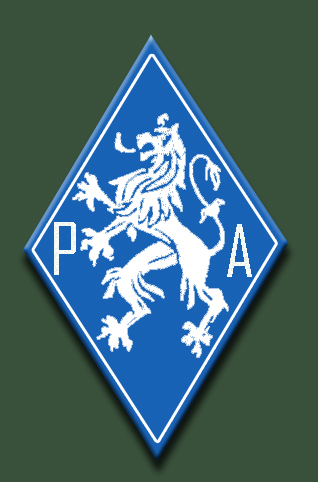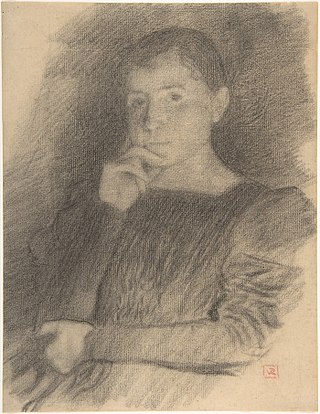
Barbe-Henriette Dieudonnée Dachsbeck (4 September 1841 – 23 January 1914) was a Belgian educator and feminist who was instrumental in the development of women's education in Belgium at the end of the nineteenth century.

Barbe-Henriette Dieudonnée Dachsbeck (4 September 1841 – 23 January 1914) was a Belgian educator and feminist who was instrumental in the development of women's education in Belgium at the end of the nineteenth century.
Born in Brussels on 4 September 1841, Henriette Dachsbeck collaborated closely with Isabelle Gatti de Gamond on the development of women's education in Belgium. [1]
In 1864, with the financial assistance of the city council, she launched the first systematic courses of secondary female education (Cours d'Éducation pour jeunes filles). Exceptionally for Belgium of the time, this venture was entirely independent of the Catholic Church, and provided the very first organised secular education for women in Belgium. [2] The Catholic press opposed her work but the school was a success. Among the teachers were Marie Popelin and Henriette Dachsbeck.
In 1876 Dachsbeck helped found a second institution for girls on rue de la Paille in Brussels and became its director. [3] This institution later became the college "Lycée Dachsbeck". [4]
In 1897, she opened a pre-university section to prepare girls for the Central Jury examination, which was a prerequisite for university studies. [5]
Henriette Dachsbeck died in Ixelles on 23 January 1914. [6] [4]

Isabelle Laure Gatti de Gamond was a Belgian educationalist, feminist, and politician.

Marie Popelin was a Belgian jurist and early feminist political campaigner. Popelin worked with Isabelle Gatti de Gamond in the development of women's education and, in 1888, became the first Belgian woman to receive a doctorate in law. After her accession to the bar was refused, Popelin went on to have an active career as the leader of the Belgian League for Women's Rights. She died in 1913 without ever gaining admission to the bar.

Zoé Charlotte de Gamond was a Belgian educator and feminist who sometimes wrote under the pseudonym Marie de G***.

Marguerite Aimee Rosine Coppin born in Brussels, was a Belgian novelist and poet. She became a feminist and pioneer in female emancipation and equal rights for women. She was compared with women's rights activists Amelia Bloomer and Emmeline Pankhurst.
Marie Nizet, married name Marie Mercier, was a Belgian writer.

The Armed Partisans was a faction of the resistance in German-occupied Belgium in World War II. The group was affiliated to the Belgian Communist Party. In 1941, many of its members left to join the Front de l'Independance while the rest of the group was undermined in 1943 when almost all the leadership of the group and the Communist Party were arrested by German forces. It was renamed the Belgian Army of Partisans' after the Liberation of Belgium in September 1944.
Constance Anne Louise Trotti, marchioness Arconati-Visconti, was a Belgian noble who hosted a leading cultural salon in Brussels. She became known as a patron of artists and Belgian cultural life.
Marie Closset was a Belgian poet. She wrote under the name Jean Dominique.
Joséphine-Rosalie-Pauline de Walckiers (1756-1837) was a composer of the Austrian Netherlands.

The Isabelle Gatti de Gamond Royal Atheneum is a French-speaking K-12 school located in Brussels, Belgium. When founded in 1864 by Isabelle Gatti de Gamond, the school was the first non-confessional school for girls in Belgium.
Madeleine De Meulemeester was a Belgian lawyer, scouts functionary and rescuer of Jewish children during the Second World War.

The Belgian League for the Rights of Women was a political association founded in Belgium in 1892. Established by Marie Popelin and her lawyer Louis Frank, it was created in response to the refusal to allow Popelin, a law graduate, to practice at the Bar. Based on the French Ligue française pour le droit des femmes, it immediately attracted 300 members. The organization was initially concerned with equal rights rather than women's suffrage but prioritized voting rights in 1912.
Jeanne Hovine was an actress and the first female Belgian comics artist.
Blanche Rousseau was a Belgian writer and educator. She is mainly known for her writing for young people.
Fernande Baetens was a 20th-century Belgian Catholic feminist jurist. In 1930, she joined the National Council of Belgian Women (CNFB). She became assistant to the National Secretary in 1933 and took part in the International Council of Women (CIF) in Stockholm. In 1935, she was appointed National Secretary of the CNFB and Vice President until 1957. She was particularly affected by the situation of poor families and advocated for the education of mothers at the social, civic and personal levels.
Emma Leclercq was a Belgian cell biologist and feminist lecturer. She was known for being the first female student and graduate from Université libre de Bruxelles, and the first female doctorate earner from Ghent University.
Jeanne-Marie Artois (1762–1840) was a Belgian brewer.
Odette De Wynter was the first woman to be a notary in Belgium.
Éliane Gubin is a Belgian historian, researcher and professor of political and social history, specializing in the history of women and feminism. In the late 1980s, she initiated the introduction of women's history at the Université libre de Bruxelles (ULB), where she is professor emerita. She also teaches the history of contemporary Belgium and specializes in social history and political history of the nineteenth century and the first half of the twentieth century, including a re-reading of the World War I. Since 1995, she has been co-director of the Centre d'archives pour l'histoire des femmes.

Augustine De Rothmaler was a Belgian pedagogue and feminist. After attending the Cours d'éducation, she taught at Cours d'éducation B for thirty years before becoming the institution's director, assuring that school classes paid attention to social aspects, feminism, and pacifism. Her interests in literature included translating works by German and Danish writers into French.